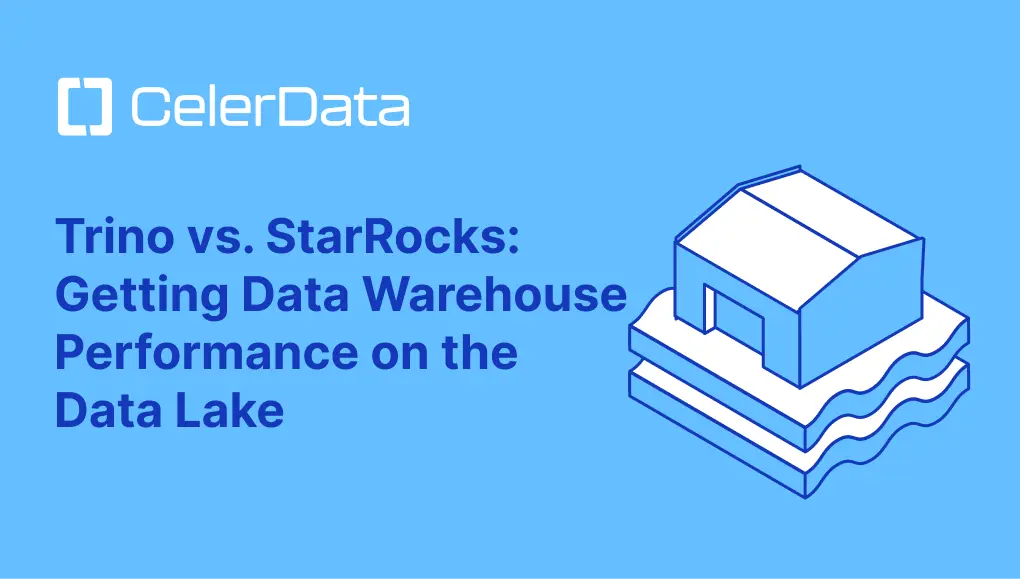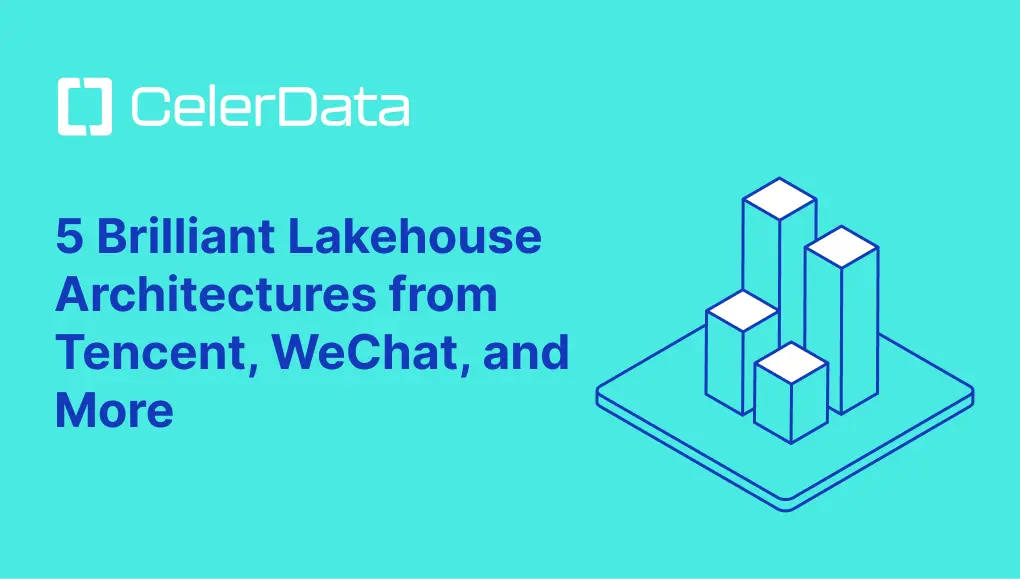
Data Analytics for Health Care

Join StarRocks Community on Slack
Connect on SlackUnderstanding Data Analytics for Health Care
Definition and Scope
What is data analytics?
Data analytics involves examining raw data to draw conclusions. This process uses specialized systems and software. In healthcare, data analytics helps improve patient care. Hospitals and clinics use data to make informed decisions. Data analytics identifies trends and patterns in patient information.
Scope in healthcare
The scope of data analytics in healthcare is vast. Healthcare providers use data to enhance patient outcomes. Data analytics supports early disease detection. Hospitals use data to optimize resource allocation. Data analytics also improves operational efficiency. The technology aids in developing personalized treatment plans.
Historical Context
Evolution of data analytics in healthcare
The evolution of data analytics in healthcare began in the 1950s. Automated applications emerged to diagnose and treat diseases. Over time, data analytics became more sophisticated. Healthcare organizations began using data for predictive modeling. The focus shifted to improving patient outcomes through data-driven insights.
Key milestones
Key milestones mark the journey of data analytics in healthcare. The introduction of electronic health records (EHRs) revolutionized data collection. EHRs provided a comprehensive view of patient history. The development of advanced algorithms enhanced data analysis. These algorithms equipped physicians with precise diagnostic tools. The integration of platforms like Sisense further streamlined data processes. Sisense enabled healthcare providers to visualize complex data sets. This visualization improved decision-making capabilities.
Types of Data Analytics in Health Care
Descriptive Analytics
Overview and examples
Descriptive analytics examines historical data to identify trends and patterns. Healthcare organizations use descriptive analytics to analyze patient records and hospital performance. This analysis helps in understanding past behaviors and outcomes.
Role in healthcare
Descriptive analytics plays a crucial role in healthcare by providing insights into patient demographics and treatment effectiveness. Hospitals use these insights to improve care delivery and operational efficiency.
Predictive Analytics
Overview and examples
Predictive analytics uses statistical models and machine learning to forecast future events. Healthcare providers apply predictive analytics to anticipate disease progression and identify high-risk patients. For example, predictive models help in forecasting surgical operation durations.
Role in healthcare
Predictive analytics enhances healthcare by enabling proactive measures. Hospitals allocate resources efficiently and optimize treatment plans through predictive insights. This approach leads to targeted patient care and improved outcomes.
Prescriptive Analytics
Overview and examples
Prescriptive analytics recommends actions based on data analysis. This type of analytics combines data from various sources to suggest optimal solutions. Healthcare facilities use prescriptive analytics to develop personalized treatment plans.
Role in healthcare
Prescriptive analytics supports decision-making in healthcare by offering actionable recommendations. Hospitals improve patient outcomes by tailoring treatments to individual needs. This method enhances the precision of medical interventions.
Applications of Data Analytics for Health Care
Patient Care
Personalized medicine
Data analytics plays a pivotal role in personalized medicine. Healthcare providers use data to tailor treatments to individual patients. This approach considers genetic information and lifestyle factors. Personalized medicine enhances treatment effectiveness and reduces adverse effects. Data-driven insights guide healthcare professionals in selecting the best therapies.
Predictive modeling
Predictive modeling transforms patient care by forecasting health outcomes. Healthcare organizations analyze historical data to identify potential risks. Predictive models help in early disease detection and prevention. Hospitals allocate resources efficiently based on predictive insights. This proactive approach improves patient outcomes and reduces hospital readmissions.
Operational Efficiency
Resource management
Data analytics optimizes resource management in healthcare settings. Hospitals analyze data to allocate staff and equipment effectively. Efficient resource management reduces operational costs and enhances service delivery. Hawaii Pacific Health saved $2.2 million through data-driven labor management. Data analytics ensures that healthcare facilities operate smoothly and efficiently.
Workflow optimization
Workflow optimization benefits greatly from data analytics. Healthcare organizations identify bottlenecks and streamline processes. Improved workflows lead to faster patient care and reduced waiting times. Data-driven insights enhance staff productivity and satisfaction. Optimized workflows enable hospitals to serve more patients daily.
Public Health
Disease tracking
Disease tracking relies heavily on data analytics. Public health officials monitor disease outbreaks using real-time data. Data analytics identifies patterns and trends in disease spread. Early detection of outbreaks enables timely interventions. Disease tracking protects communities and prevents widespread infections.
Health trend analysis
Health trend analysis provides valuable insights into public health issues. Data analytics examines large datasets to identify emerging health trends. Public health agencies use these insights to develop effective policies. Health trend analysis helps in allocating resources to areas of greatest need. Data-driven decisions improve overall public health outcomes.
Benefits of Data Analytics in Health Care
Improved Patient Outcomes
Enhanced diagnosis
Data analytics enhances diagnosis by providing accurate insights. Healthcare providers analyze patient data to identify patterns. This analysis leads to early detection of diseases. Accurate diagnoses improve treatment effectiveness and patient outcomes.
Tailored treatment plans
Tailored treatment plans rely on data-driven insights. Healthcare professionals use patient data to customize care. Personalized plans consider genetic and lifestyle factors. This approach increases treatment success and reduces adverse effects.
Cost Reduction
Efficient resource allocation
Efficient resource allocation results from data analytics. Hospitals analyze data to optimize staff and equipment use. This efficiency reduces operational costs and enhances service delivery. Effective resource management ensures high-quality care.
Reduced waste
Data analytics helps reduce waste in healthcare settings. Providers identify cost-saving opportunities through data analysis. Waste reduction improves financial performance and resource utilization. Efficient operations lead to better patient care and satisfaction.
Enhanced Decision-Making
Data-driven insights
Data-driven insights improve decision-making in healthcare. Providers use analytics to convert data into actionable information. These insights guide strategic planning and operational improvements. Informed decisions enhance patient care and organizational efficiency.
Strategic planning
Strategic planning benefits from data analytics by providing accurate forecasts. Healthcare organizations use data to anticipate future needs. This planning optimizes resource allocation and improves service delivery. Effective strategies lead to improved patient outcomes and satisfaction.
Challenges and Considerations in Healthcare Analytics
Data Privacy and Security
Protecting patient information
Healthcare organizations face challenges in protecting patient information. Data breaches pose significant risks to patient privacy. Organizations must implement robust security measures. Encryption and access controls safeguard sensitive data. The Health Insurance Portability and Accountability Act (HIPAA) Privacy Rule sets a baseline for protecting health information. Compliance with these regulations is essential for maintaining trust.
Compliance with regulations
Compliance with regulations ensures the protection of patient data. Healthcare providers must adhere to federal privacy laws. The HIPAA Privacy Rule requires strict confidentiality measures. Organizations must obtain informed consent before using patient information. Ethical standards guide the sharing of patient data. Compliance helps prevent unauthorized access and misuse of information.
Integration and Interoperability
System compatibility
System compatibility presents a challenge in healthcare analytics. Different systems often lack seamless integration. Healthcare providers need compatible systems for efficient data exchange. Interoperability enhances communication between various platforms. Standardized protocols facilitate data sharing. Improved system compatibility leads to better patient care.
Data standardization
Data standardization is crucial for effective healthcare analytics. Inconsistent data formats hinder analysis and decision-making. Standardization ensures uniformity across datasets. Healthcare organizations must adopt common data standards. Consistent data enables accurate insights and predictions. Standardization improves the quality of healthcare analytics.
Skill and Resource Gaps
Training healthcare professionals
Training healthcare professionals is vital for successful analytics implementation. Many professionals lack the necessary skills for data analysis. Organizations must invest in training programs. Education equips staff with analytical competencies. Skilled professionals enhance the effectiveness of healthcare analytics. Training bridges the gap between technology and practice.
Access to technology
Access to technology remains a barrier in healthcare analytics. Some organizations struggle with outdated systems. Limited resources hinder technological advancements. Investment in modern technology is essential for progress. Advanced tools enable comprehensive data analysis. Access to technology empowers healthcare providers to deliver quality care.
Future of Data Analytics in Health Care
Emerging Technologies
AI and Machine Learning
Artificial intelligence (AI) and machine learning are transforming healthcare analytics. These technologies analyze vast datasets quickly. Hospitals use AI to predict patient outcomes and optimize treatment plans. Machine learning algorithms identify patterns in patient data. This leads to early disease detection and personalized care.
Blockchain
Blockchain technology enhances data security in healthcare. It provides a secure way to store and share patient information. Blockchain ensures data integrity and prevents unauthorized access. Healthcare organizations use blockchain for transparent data transactions. This technology builds trust between patients and providers.
Potential Developments
Predictive Analytics Advancements
Predictive analytics continues to evolve in healthcare. New models forecast disease progression and identify high-risk patients. Healthcare providers use these insights to improve patient outcomes. Predictive analytics optimizes resource allocation and treatment strategies. This approach enhances the efficiency of healthcare services.
Global Health Impact
Data analytics impacts global health by providing actionable insights. Healthcare organizations track disease outbreaks and monitor health trends. Data-driven decisions improve public health policies and resource distribution. Analytics supports international efforts to combat pandemics and chronic diseases. The global health landscape benefits from data-driven innovations.
Conclusion
Data analytics revolutionizes healthcare by enhancing patient care and operational efficiency. Healthcare organizations leverage data to make informed decisions, improving patient outcomes and reducing costs. Artificial intelligence and advanced analytics transform complex medical data into actionable insights. This transformation leads to quicker and more precise diagnoses. The future of healthcare analytics holds immense potential for further advancements. Investing in data analytics equips healthcare providers with tools to unlock vital information. This investment ensures a patient-centered approach and fosters innovation in the healthcare industry.



.jpg)